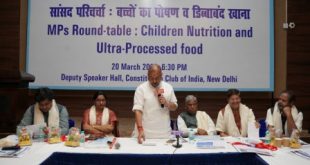[ad_1]
PUNE: The existing good bacteria in the nasal environment of a Covid-positive person can influence the severity of the infection, a study by the city-based National Centre for Cell Science (NCCS) and B J Medical College has revealed. Scientists say this could also explain why certain individuals infected with SARS-COV-2 are asymptomatic – the concept being somewhat like the presence of good bacteria in the gut helping one’s immunity to fight infections.
The study has also observed higher abundance of specific opportunistic pathogens in those infected with Covid-19, suggesting that the inflammatory environment caused by the infection causes an increase in bacterial pathogens that may result in secondary infection. A secondary infection can occur when a different infection, known as the primary infection, makes a person more susceptible to disease.
“The increase in pathogenic bacteria in the nasal microbiome (the micro-organisms in a particular environment) of Covid-19 patients is due to the accumulation of mucus, known to favour the growth of these organisms, and a hyper-inflammatory environment (extensive inflammation in the body) that supports their growth,” said Avinash Sharma, scientist, NCCS, who led the study.
Sharma told that the increase in various opportunistic pathogens in the nasal environment might also promote the entry of the virus via the route. “There was a reduction in good bacteria, known to have a positive impact on the immune system, in the nasal region of Covid-19 patients. This, in turn, causes opportunistic pathogens to colonise the site. The study is significant as it can help determine how the virus actually promotes increase in opportunistic pathogens, which may enhance the severity of other diseases.”
As part of the study, researchers collected nasopharyngeal swabs from clinically suspected patients of SARS-CoV-2 infection and their family contacts.
The study has also observed higher abundance of specific opportunistic pathogens in those infected with Covid-19, suggesting that the inflammatory environment caused by the infection causes an increase in bacterial pathogens that may result in secondary infection. A secondary infection can occur when a different infection, known as the primary infection, makes a person more susceptible to disease.
“The increase in pathogenic bacteria in the nasal microbiome (the micro-organisms in a particular environment) of Covid-19 patients is due to the accumulation of mucus, known to favour the growth of these organisms, and a hyper-inflammatory environment (extensive inflammation in the body) that supports their growth,” said Avinash Sharma, scientist, NCCS, who led the study.
Sharma told that the increase in various opportunistic pathogens in the nasal environment might also promote the entry of the virus via the route. “There was a reduction in good bacteria, known to have a positive impact on the immune system, in the nasal region of Covid-19 patients. This, in turn, causes opportunistic pathogens to colonise the site. The study is significant as it can help determine how the virus actually promotes increase in opportunistic pathogens, which may enhance the severity of other diseases.”
As part of the study, researchers collected nasopharyngeal swabs from clinically suspected patients of SARS-CoV-2 infection and their family contacts.
[ad_2]
Source link
 Pradesh Jagran | प्रदेश जागरण Latest News,Breaking News,Updates,Hindi News,UP News
Pradesh Jagran | प्रदेश जागरण Latest News,Breaking News,Updates,Hindi News,UP News



